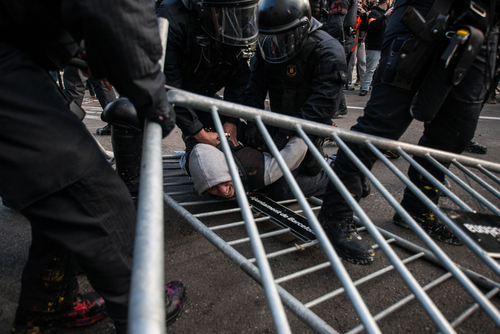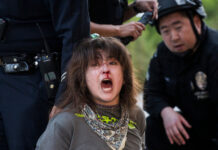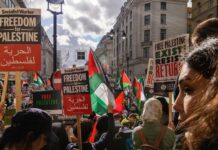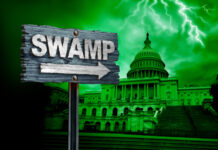
Renowned environmental activist, Greta Thunberg, has recently been charged with a public order offence. The 20-year-old Swedish campaigner was part of a protest outside a central London hotel, which led to her arrest by the Metropolitan Police.
Thunberg, known for her passionate speeches and climate change activism, was among 26 individuals charged following the demonstration outside the InterContinental Hotel in Park Lane. The hotel was hosting a significant gathering of oil executives at the time.
The police asked the protesters to move from the road onto the pavement to avoid breaching the conditions of public assembly.
Here's Greta Thornburg illuminati pic.twitter.com/IzWA6iHGHx
— Dawn Evans (@evans_dawn41321) October 15, 2023
The charge against Thunberg is specifically related to failing to comply with a condition on public assemblies. This condition was imposed under Section 14 of the Public Order Act, designed to prevent disruption to the public.
The police stated they asked the protesters to relocate to the pavement, which would have allowed them to continue their demonstration legally.
Despite the charges, Thunberg appeared unfazed. She was seen smiling while detained by officers and led to a waiting police van. The incident occurred after she joined a protest outside the Energy Intelligence Forum (EIF), formerly known as the Oil and Money conference.
Thunberg had earlier spoken outside the hotel as part of a protest organized by Fossil Free London against the EIF event. She urged eco-activists to ‘reclaim the power’ and criticized politicians for their lack of action on global warming.
Greta Thunberg was arrested again…antifa girl. pic.twitter.com/stlE15jXs4
— JackReacher (@DCjusticeseeker) October 17, 2023
The protest also saw other activists from Greenpeace rappelling down the side of the hotel to unfurl a banner reading: ‘Make Big Oil Pay.’ The demonstration was part of a larger movement against major energy firms and their role in climate change.
Thunberg is scheduled to appear at Westminster Magistrates’ Court on November 15. This incident serves as a reminder that while peaceful protest is a democratic right, it must be conducted within the boundaries of the law to ensure public safety and order.












